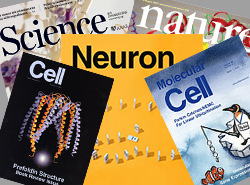Publication of IMPRS-LS student Hilda Delgado de la Herran

Delgado de la Herran, H.C., Cheng, Y., and Perocchi, F.
Cell Calcium, 2021, 95, 102364.
doi: 10.1016/j.ceca.2021.102364
Towards a systems-level understanding of mitochondrial biology
Human mitochondria are complex and highly dynamic biological systems, comprised of over a thousand parts and evolved to fully integrate into the specialized intracellular signaling networks and metabolic requirements of each cell and organ. Over the last two decades, several complementary, top-down computational and experimental approaches have been developed to identify, characterize and modulate the human mitochondrial system, demonstrating the power of integrating classical reductionist and discovery-driven analyses in order to de-orphanize hitherto unknown molecular components of mitochondrial machineries and pathways. To this goal, systematic, multiomics-based surveys of proteome composition, protein networks, and phenotype-to-pathway associations at the tissue, cell and organellar level have been largely exploited to predict the full complement of mitochondrial proteins and their functional interactions, therefore catalyzing data-driven hypotheses. Collectively, these multidisciplinary and integrative research approaches hold the potential to propel our understanding of mitochondrial biology and provide a systems-level framework to unraveling mitochondria-mediated and disease-spanning pathomechanisms.
